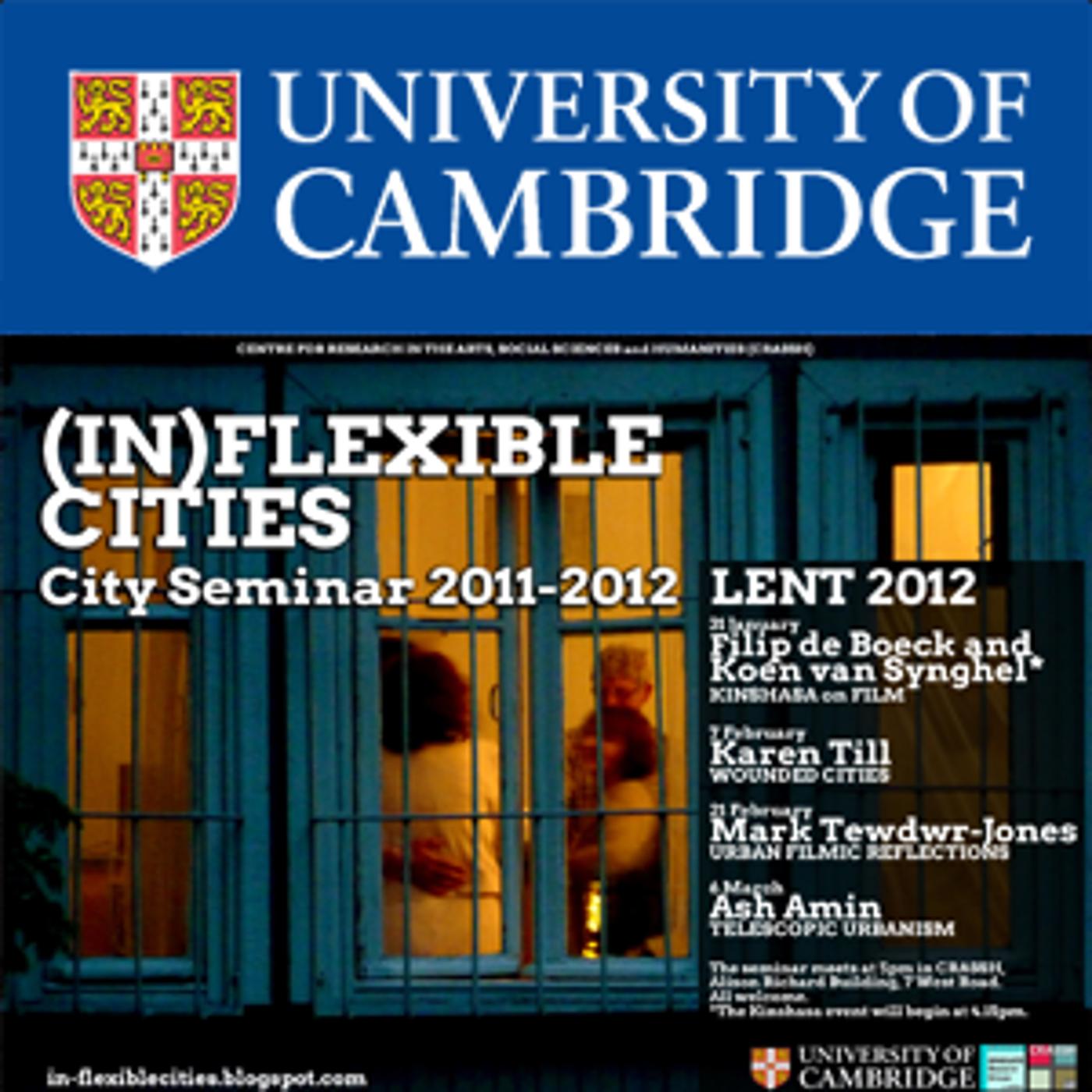City Seminar - 3 November 2014 - Refugees and the Urban Poor: In Two Palestinian Enclaves
Update: 2014-11-10
Description
Silvia Pasquetti (University of Cambridge)
Abstract
This paper builds on recent theorizing about refugee camps as urban sites and about the relationships between the urban poor and refugees (e.g. Agier, Malkki and Bauman 2002; Sanyal 2013) to connect and compare two localities of urban marginality across the Green Line between Israel and the West Bank: a West Bank refugee camp and the Arab districts of an Israeli city. Drawing on ethnographic research within and across the camp and the city it traces the historical and ongoing ties between Palestinian refugees and urban minority citizens while exploring their differing sense of injustice, politics, and morality. I argue that a focus on place (camp versus city) and legal-political status (refugees versus minority citizens) alone cannot explain how and why, despite their ethnonational and kin ties, these two segments of poor Palestinians differ in how they perceive and articulate issues of survival and politics. Explaining these differences requires exploring the forms of sociolegal control they experience in their everyday lives. Specifically, it requires studying their distinct relationships with the Israeli state’s coercive agencies and, for the refugees, their protracted relationship with humanitarian organizations. The paper concludes by calling for more comparative research on the role of agencies of control in the articulation of practices and meanings of survival and politics in localities of urban marginality. A focus on the interplay between control and space can help bring the urban poor and refugees in the same analytic framework thus enriching ongoing urban sociology debates about urban marginality.
Abstract
This paper builds on recent theorizing about refugee camps as urban sites and about the relationships between the urban poor and refugees (e.g. Agier, Malkki and Bauman 2002; Sanyal 2013) to connect and compare two localities of urban marginality across the Green Line between Israel and the West Bank: a West Bank refugee camp and the Arab districts of an Israeli city. Drawing on ethnographic research within and across the camp and the city it traces the historical and ongoing ties between Palestinian refugees and urban minority citizens while exploring their differing sense of injustice, politics, and morality. I argue that a focus on place (camp versus city) and legal-political status (refugees versus minority citizens) alone cannot explain how and why, despite their ethnonational and kin ties, these two segments of poor Palestinians differ in how they perceive and articulate issues of survival and politics. Explaining these differences requires exploring the forms of sociolegal control they experience in their everyday lives. Specifically, it requires studying their distinct relationships with the Israeli state’s coercive agencies and, for the refugees, their protracted relationship with humanitarian organizations. The paper concludes by calling for more comparative research on the role of agencies of control in the articulation of practices and meanings of survival and politics in localities of urban marginality. A focus on the interplay between control and space can help bring the urban poor and refugees in the same analytic framework thus enriching ongoing urban sociology debates about urban marginality.
Comments
Top Podcasts
The Best New Comedy Podcast Right Now – June 2024The Best News Podcast Right Now – June 2024The Best New Business Podcast Right Now – June 2024The Best New Sports Podcast Right Now – June 2024The Best New True Crime Podcast Right Now – June 2024The Best New Joe Rogan Experience Podcast Right Now – June 20The Best New Dan Bongino Show Podcast Right Now – June 20The Best New Mark Levin Podcast – June 2024
In Channel





